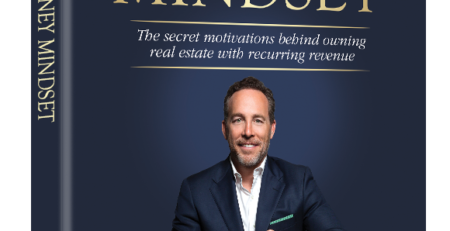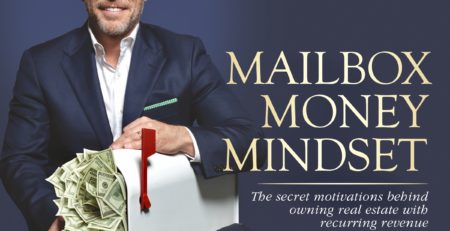Strategies for Creating an Investment Mindset: Start with Investing in Yourself
Creating an investment mindset doesn’t begin and end with thinking about your money. When you look at your money, you want it to work for you: to take a small fund and build it into a larger one that will help create an income stream for you later, whether you’re hoping to build money for retirement or to have additional funds for a specific purpose. In order to make the most out of the investment opportunities available to you, however, you have to start by learning how to invest in the thing that’s most important to your ultimate success: yourself!
Invest in YOU During Your Free Time
Popular culture today teaches most people to throw money away as fast as they can get their hands on it–or, in some cases, even faster. Nearly half of Americans carry credit card debt, and among those who do, it averages more than $15,000. While responses vary as to why this is such a serious problem–many theorize that rising debt is due to an increase in cost of living that is rising faster than wage increases can keep up with it–part of the reason so few Americans are able to live an investment lifestyle and therefore increase their available funds is simple: they’re consuming the kind of trash that leads to a poor mindset and a poor lifestyle.
When you put in the same poor quality consumption as the rest of America, you’re going to live poor–just like everyone else. If you want to make a real difference in your finances, it’s time to change your entire mindset and start genuinely investing in yourself. For example, when I was first learning how to invest in real estate, I spent my free time reading real estate books and looking into properties to purchase. When you’re ready to advance yourself, you’ll use your leisure time to your benefit: building a side income, increasing your skills, or learning more about your real interests, rather than staring mindlessly at the TV or internet.
What You Watch
When you flip on the TV for some rest and relaxation at the end of the night, what are you watching? Are you feeding your brain, or are you consuming little more than trash designed to help encourage over-consumption? It’s not just commercials that can tempt you to buy more, either. The average television character lives in a space far larger than their supposed budget would be able to afford and often seems to have an endless stream of income. While whining about struggling to pay bills on one hand, they may hang out in expensive restaurants, make impulse purchases by the dozens, and indulge their bad habits as often as they like. While these habits and issues make for good television (after all, you couldn’t fit a camera crew in an average apartment in New York, much less in a college dorm room), they don’t make for good advice for living. Not only that, filling your mind with trash leaves that much less room for the more important things that could have a serious impact on your financial future.
What You Wear
Did you know that the clothes you wear can have a significant influence over your financial success? Not only that, the clothes you choose to buy–and how you buy them–can make a big difference in your finances over time. Take a look at some of these startling statistics.
The average woman only wears around 60% of what’s in her closet. That means 40% of the wardrobe just taking up space–and, more than likely, 40% of the money spent on clothes virtually wasted. Learning to control your spending, including avoiding purchasing items that you know you won’t wear and turning to thrift or discount stores for items like fancy dresses that will likely only be worn once, can make a big difference in your clothing budget, freeing up funds for other items.
Only 20% of the items in your closet are worn regularly. Sure, you’ll toss on that shirt when nothing else is clean or grab that dress if you need something in a hurry, but it’s just not your favorite. Most of the time, you’re getting by on just 20% of your wardrobe. By choosing to invest in something besides clothes, you could make a substantial dent in your clothing spending and create an emergency fund or start investing in other areas instead.
Your clothing makes an impression. While people try to argue that it’s not fair to discriminate on the basis of clothing choices, it’s also true that a neat, professional appearance will go a long way. People who look professional are treated as professionals–and a solid investment in a great wardrobe can help make the statement you’re looking to make.
Quality over quantity is more likely to impress–and suit your budget. While it can be difficult to turn down a sale, keep in mind that quality, durable clothing items that are likely to remain popular for more than a single season are a more worthy investment than cheap, flimsy items that will fall apart after a few washes.
Pay attention to the clothing you choose to invest in. You’ll quickly discover that the right investments in clothing can make a big difference in your wallet–and leave you much happier, overall, with the contents of your closet.
Investing in Your Health
Bad health gets expensive quickly. Quality medical care is expensive, from the medications needed to control cold and flu symptoms to more serious visits to the hospital like those from injuries. Investing in your health isn’t just a smart decision to keep you working and happy. It’s also a serious financial investment. Consider some of these key tips.
- Eat healthy–at least most of the time. Healthy eating can help stave off illness and prevent you from developing a number of serious conditions.
- Find an exercise program that works for you, whether that means investing in a gym membership or online videos. Exercise helps keep your body young and spry, keeping you feeling your best. I’ve been taking Krav Maga, a form of martial arts, for the past few years. It keeps me healthy as well as developing discipline in life.
- Keep up with your regular health appointments. A well visit to the doctor–often covered by your insurance policy–can help you catch serious health problems before they become a bigger issue.
- Reduce alcohol consumption. Alcohol is a depressant, and it doesn’t go well with an investor mindset when it’s being abused!
Quality Friendships
The people you spend time with will help shape and determine your personality. While this isn’t a perfect guarantee–you can always be the oddball in your circle of friends–your friendships can significantly impact your financial status and your investment mentality. When you spend time with friends who are likely to make wise decisions, you’re more likely to do the same.
Think about sitting around the table with a group of friends. If one person orders dessert, it frees the rest of the table up to do the same–and a result, you all consume far more calories than you would have if you’d grabbed dinner with a healthier crowd who decided to pass on dessert. The same is true of many activities with your friends. Solid friendships with the kind of people who are making the same wise financial decisions you are can help you save more money, avoid debt, and take full advantage of a wide range of investment opportunities.
I choose to spend a larger percentage of my time with people who started with nothing: those who aren’t trying to compete with the Joneses or remain in constant competition to see who has the most material possessions. Instead, I surround myself with people who are dedicated to investing in their future.
An investment mindset isn’t just about your money, though it’s certainly one important piece of the puzzle. By wholeheartedly investing in yourself, from your health to your wardrobe, you can transform your entire life and create a better mentality that will help you develop the funds you need.




